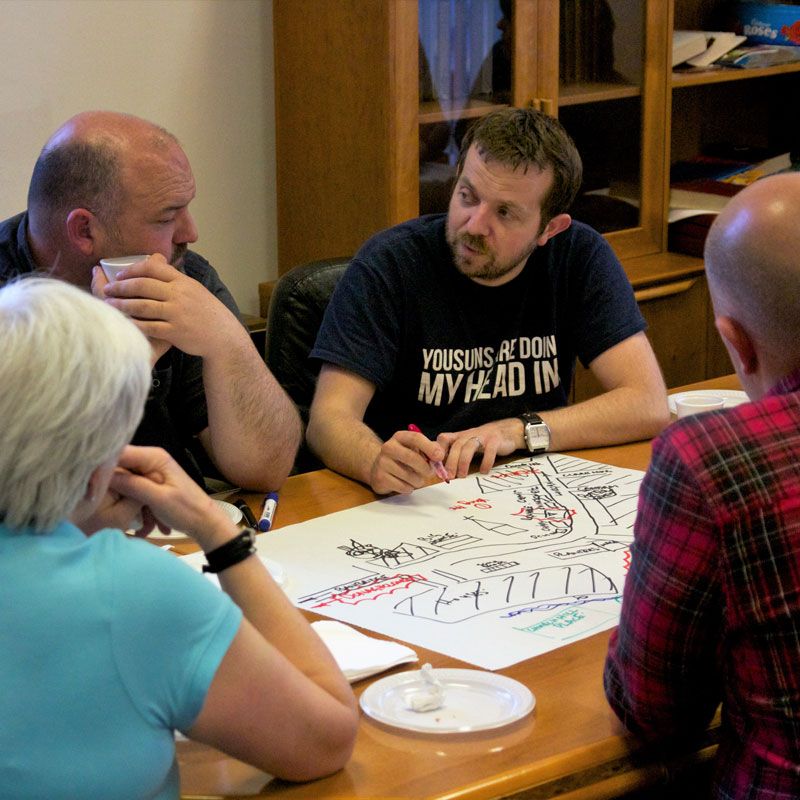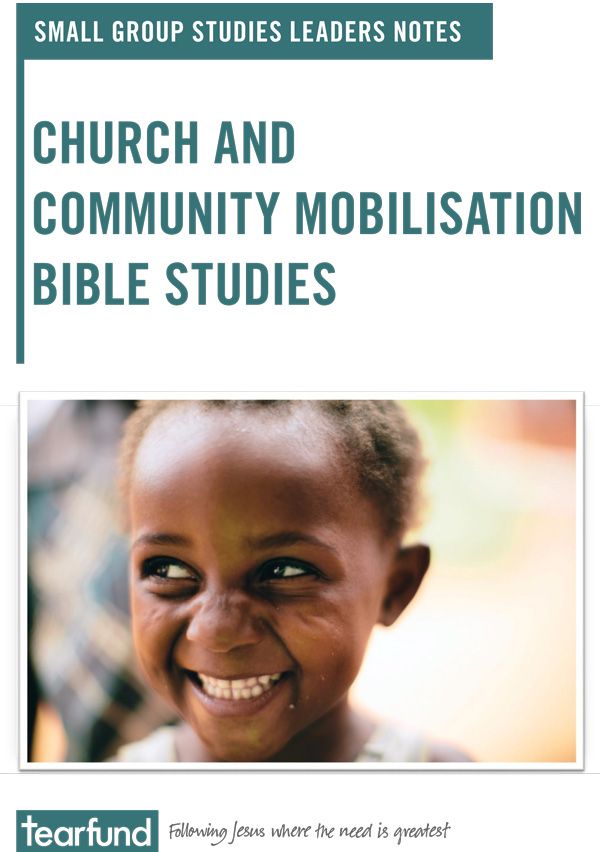
What is Church Community Transformation?
The objective of CCT is to empower local people to transform their situation using their own God given resources in a sustainable and holistic way.

Background
Since its inception and rollout in the late 1990’s, the church and community mobilisation process, as it is known in Africa has increasingly gained acceptance in thousands of churches across different countries of the world.
The results everywhere are astounding – the church impacting its immediate community in such a way that it influences important decisions that affect the way of life of the community; the church motivating its immediate community to transform its situation sustainably; relationships among people being restored in a lasting manner; people supporting one another to meet their needs; people addressing their physical and spiritual poverty deeply and extensively and people honouring and worshipping God more consciously.
The Church is the largest voluntary network in the world, and it can reach places and people which governments cannot. It holds local relationships. It has a local understanding of need and context. The Church is called by God to bring transformation to each geographical location in the world where it finds itself.
Unlocking your Church’s Missional Potential
Through CCT, Thrive Ireland enables your church to realise its local and global mission and vision.
It enables the development of authentic relationships with the local community – to meet need, enabling people to thrive, flourish and become the people that God created them to be.
It creates space and enables your church to take time to listen to God, each other and the community to better understand the need and develop a missional response
The process is about working with the church leaders and members to help them understand their biblical responsibility to serve their local communities. The process will help to build the confidence of the church members and help them identify their strengths and resources, so that they can believe that change is possible.
CCT is a bottom up approach which involves the whole congregation and encourages participation and engagement in the process. Whilst congregational members may not attend every activity, they should always be invited. This leads to ownership and a higher energy and engagement in the actions which come out of the process.

The 4 Steps of Church Community Transformation
Stop
Take time to pause, assess, reflect and celebrate what your church is already doing both locally and globally and to explore God’s heart for mission. (Theological understanding) Take time to understand the complex nature of poverty and our different attitudes to local and global poverty.
Look
And understand what God has already put in our hands, what we already know and understand of our community because many of us are members of that community as well as members of the church. Look at what others within our congregation are already doing within that community and how that can enable us to build better relationships. (Church and skills audit)
Listen
Taking time to build relationships with our local community by listening and talking with people. Finding out about local needs, pain and suffering. Opening our hearts as well as our ears. Taking time to listen to God. (Community Audit)
Walk
Taking into account the learning from stop, look and listen, we begin to work and dream dreams with our community to make a difference. The congregation will vote on the actions to take, based on what they have discovered through the process. (Strategic Plan).
What are the benefits of the CCT process?
CCT builds on the strengths and hopes of a church group that want to make a difference in their community. There are a number of benefits to the church and community.
- Grows as a positive influence within the community.
- Helps the church to reflect on the bible and its role to meet the needs of others.
- Enhances the prayer life of the church.
- Develops a more integral understanding of mission and imprints it in the DNA of the church.
- Helps identify resources in the church.
- Builds relationships both inside and outside the church.
- Confidence is built by working in a team. · Helps the church become a growing community, sharing experiences and achievements.
- Self-reliance
- Self esteem
- Sustainable change
- Sense of hope and well-being
- Improved community relationships
- A more joined up approach in the wider community

How Thrive Ireland, in partnership with The Link, have facilitated Churches working together in Newtownards
CCT Testmonials
-

“Thrive Ireland helped us to identify local needs and enabled us to harness the support and skill of the church family to begin responding to these needs.”
Neil Harrison, Community Pastor Waringstown Presbyterian Church.
-

“(The CCT process)… forced us to think about the community we are part of and ask hard questions about our relevance and place in Waringstown. It gave structure to conversations, grounded our discussion in Scripture and enabled us to translate conclusions into action.”
Rev. Philip Thompson – Waringstown Presbyterian Church
-

“Thrive Ireland has provided a structured way to address outreach and community engagement which is engendering the enthusiasm and interest of our congregation across all groups and ages. We would thoroughly recommend that other congregations consider the CCT model as they explore their own local mission plans and strategies.”
Trevor Reaney Kirk Session, Moira Presbyterian
-

“From the initial vision of the church, The Base has become a well respected youth centre and is the only facility in Lambeg to cater for youth. Without CCT, we would never be where we are today.”
John Blair, The Base Coordinator
how Thrive have facilitated Churches working together in Newtownards, N. Ireland.
CCT Testmonials
-

“Thrive Ireland helped us to identify local needs and enabled us to harness the support and skill of the church family to begin responding to these needs.”
Neil Harrison, Community Pastor Waringstown Presbyterian Church.
-

“(The CCT process)… forced us to think about the community we are part of and ask hard questions about our relevance and place in Waringstown. It gave structure to conversations, grounded our discussion in Scripture and enabled us to translate conclusions into action.”
Rev. Philip Thompson – Waringstown Presbyterian Church
-

“Thrive Ireland has provided a structured way to address outreach and community engagement which is engendering the enthusiasm and interest of our congregation across all groups and ages. We would thoroughly recommend that other congregations consider the CCT model as they explore their own local mission plans and strategies.”
Trevor Reaney Kirk Session, Moira Presbyterian
-

“From the initial vision of the church, The Base has become a well respected youth centre and is the only facility in Lambeg to cater for youth. Without CCT, we would never be where we are today.”
John Blair, The Base Coordinator
Thrive Ireland Support (resource list)
We offer bespoke support to Churches and faith based organisations. Here’s how we can help.
-
How to listen to your community to discover the needs. (Doing a community audit as a church).
-
Dealing with hopes, fears and expectations of your congregation and community outreach.
-
Whole-life mission – a biblical imperative! (Community Development in church language).
-
Towards an understanding of poverty – local and global.
-
Unlocking the potential of your congregation through releasing their God given potential. (Volunteer recruitment).
-
Discovering, releasing and valuing volunteers – Called to serve in your local community.
-
Building relationships through prayer, care, compassion and service.
-
Developing and implementing a strategic plan for community engagement that everyone can own.
-
Building faith networks for learning and building kingdom values.
-
Understanding and dealing with Conflict.
Bible Study Resources (with thanks to Tearfund)

Click button to download
This is a monitoring and evaluation tool which we use for churches who want to journey in the Church Community Transformation process. We ask each church to fill it in at the beginning and at the end of the process. It enables you to see progress.
It’s called the integral mission star and it seeks to measure how well your church understands and practices integral mission. Try it now to see how you are doing.